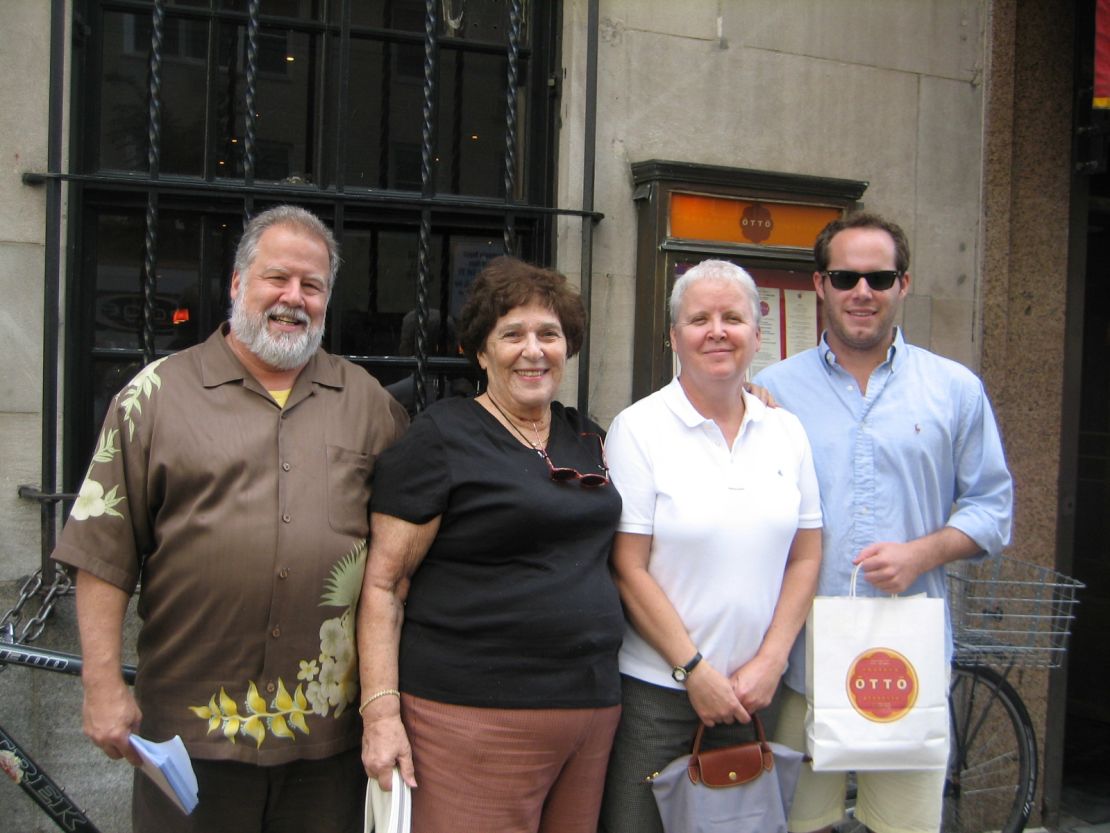Editor’s Note: David Bianculli is founder and editor of TV Worth Watching.com and teaches TV and film at Rowan University in New Jersey. He also is TV critic and guest host for NPR’s “Fresh Air with Terry Gross.”
Story highlights
David Bianculli: Why are we so riveted by "Breaking Bad" finale, "Homeland" season premiere?
He says "Sopranos" paved way for anti-heroes; among those that followed, these two shine
He says "Bad" finale especially anticipated because it's providing actual ending
Bianculli: "Homeland" still draws, but not as hot as "Bad," where interest built to fever pitch
On the final episode of AMC’s “Breaking Bad,” Sunday night, Bryan Cranston’s Walter White finally meets his broken-bad destiny, whatever that means. On the opening episode of the new season of Showtime’s “Homeland,” the same night, Claire Danes’ Carrie Mathison is about to undergo another very tough stretch.
What does it mean about television, and ourselves, that these two very volatile loners – Walter, the former high-school chemistry teacher turned murderous meth manufacturer, and Carrie, the bipolar CIA agent whose instincts are as good as her psyche is fragile – have captured the pop-culture zeitgeist?

It could mean that, ever since HBO’s “The Sopranos” gave us permission more than a decade ago to embrace imperfect heroes, even anti-heroes, at the center of our TV dramas, it was only a matter of time, and a few short steps, before we could empathize with cancer-ridden Walter and, on “Homeland,” Damian Lewis’ (literally) tortured POW Brody.
We were led here in impressive increments: Michael Chiklis’ Vic Mackey in FX’s “The Shield.” Denis Leary in FX’s “Rescue Me.” Lots of flawed characters on ABC’s “Lost,” FX’s “Justified” and other quality TV dramas.
But really, credit the writers and the performers, and directors and other crew members, of these two dramas for raising the bar so high that their shows have become essential topics of conversation. At a time of ever fragmenting viewership, when fewer people are watching television in “real time,” “Homeland” and “Breaking Bad” continue to break through.
Especially “Breaking Bad.” “Homeland” hit a fever pitch its first season, and though it’s still strong, is not as dominant a conversational topic as it was its freshman year. “Breaking Bad,” on the other hand, built slowly, brilliantly. By the time it got to the midseason break of its final year, it seemed the bandwagon pulled up and everyone, absolutely everyone, climbed on. “Breaking Bad,” regardless of its audience levels on AMC (another show from the network, “The Walking Dead,” draws almost twice as many viewers), is the show of the fall 2013 TV season. Doesn’t matter what else is out there, or whether it’s on broadcast or cable. “Breaking Bad” is it.
Partly, this is because series creator Vince Gilligan has promised, and scheduled, an actual ending – an approach that TV hit on in 1967, when ABC gave producer Quinn Martin enough advance warning that his ongoing narrative drama, “The Fugitive,” would not be renewed. Martin turned around and gave viewers the ending they’d been waiting for.
Presto: In the dog days of August, that finale to “The Fugitive” drew the biggest ratings in the history of television up to that time. Since then, some of the most ambitious TV dramas have ended not with a bang or a whimper, but with a preconceived farewell ending. Some were perfect, like HBO’s “Six Feet Under” and FX’s “The Shield.” Others were disappointing, like ABC’s “Lost” and, most recently, Showtime’s “Dexter.” And some infuriated some while delighting others, like NBC’s “St. Elsewhere” and HBO’s “The Sopranos.”
But “Breaking Bad” may be in a category all its own. The last time, as a TV critic and as a viewer, I’ve anticipated a television drama as eagerly as I have “Breaking Bad” was in the glory days of “Twin Peaks” at the dawn of the 1990s. Back then, there was no Internet as we know it to spread the word and parse every image and line of dialogue – but some serious-minded fans did the pre-Internet equivalent, and launched a monthly magazine devoted to “Twin Peaks,” called Wrapped in Plastic, the name derived from a key line of dialogue in the show.
Had the Internet not been around for “Breaking Bad,” we might have another magazine on our hands: Yeah Science, Bitch!
Instead, it is the very existence of new technology that has allowed new fans to find and embrace “Breaking Bad” so fervently, and to dive into “Homeland” so completely. Not only does the Internet, through fan and media sites, keep the focus on these shows and their ambitious story lines, but viewers can catch up by watching old episodes on streaming sites, or buying DVD sets.
The constant, instant exposure helps, and so does the incessant media attention. But this infatuation with these dark dramas wouldn’t occur if these TV series weren’t as good as they are. Before I saw the pilot episode of “Breaking Bad,” the written premise in the press release was so grim – meek science teacher with pregnant wife and teen son learns he has terminal cancer, and starts making meth to provide a nest egg for his family – I had never heard of a show I wanted to see less.
Now, as it reaches its conclusion, I can’t think of a show I’ve ever wanted to see more.
Follow us on Twitter @CNNOpinion.
Join us on Facebook/CNNOpinion.
The opinions expressed in this commentary are solely those of David Bianculli.

















